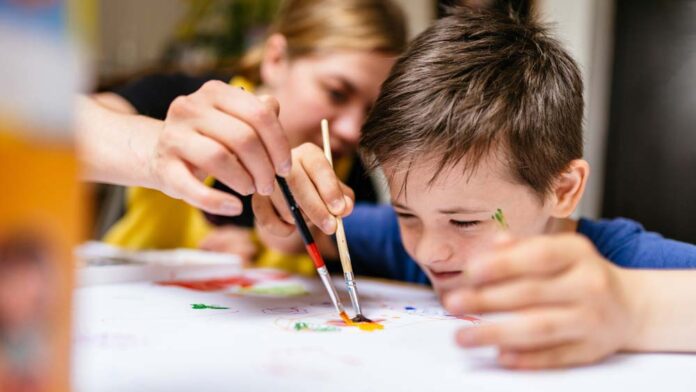Proper cooperation of the school with students’ parents is the basic factor determining the effectiveness and efficiency of the educational and upbringing interactions. For students with special educational needs, this is especially important because of their unique needs.
Proper cooperation should be understood as creating an atmosphere at school that would make a parent of a child with special educational needs feel good here, be convinced that the pedagogical team primarily cares about the well-being of their descendant, trust teachers and willingly undertake cooperation with them for the benefit of the child.
PSYCHOLOGICAL ASYMMETRY
From a psychological point of view, the relationship between the teacher and the student’s parents is asymmetrical. The teacher has some kind of advantage. He acts on behalf of the institution, he is a decision-maker, a professional with knowledge and experience. That is why it is the teacher who is responsible for the shape and nature of the relationship with parents.
PARTNERSHIP
How to work with parents of students The teacher should not over-emphasize or use their advantage over their parents. He cannot position himself as an omniscient authority who imposes his vision of educating a child. On the contrary, it is advisable for him to try to treat the pupil’s parents as partners as often as possible.
- It can do this by involving them in the planning and evaluation process of work with the child.
- Parents must know and understand the goals that the teacher intends to achieve in working with their child.
Moreover, they should also have a real influence on their formulation. Also, the methods and methods of achieving the intended goals should be known to parents and developed together with them. Parents’ voice should also be taken into account when assessing the effects of work with a child.
PARENTS AS A SOURCE OF KNOWLEDGE ABOUT THE CHILD
Parents know their child very well and know better than the teacher what the child is having problems with. They know what causes him difficulties, what his needs are, what are his strengths, what motivates or discourages them the most. The teacher should use this parental knowledge constantly.
Thanks to this, a child with special educational needs will be educated and brought up at school in a way that is most appropriate to his individual needs and psychophysical abilities, and with methods similar to those used by parents at home.
 On the other hand, parents will be able to feel themselves as real partners of the teacher, i.e. entities whose needs and opinions are taken into account and which retain the full right to decide about the fate of their child.
On the other hand, parents will be able to feel themselves as real partners of the teacher, i.e. entities whose needs and opinions are taken into account and which retain the full right to decide about the fate of their child.
TRANSFERRING KNOWLEDGE TO PARENTS
It is advisable for the teacher to pass on some of his knowledge and experience to the parents of the student. However, he must remember that they are not the child’s therapists. Therefore, they do not have to learn all the information about its disorders, didactics or methodology of upbringing.
- It is enough for the teacher to provide them with basic information allowing them to understand the child’s behavior even better than before and helpful in solving the problems encountered in dealing with him.
- It is important for the teacher to share his knowledge with the parents of the student in a non-obtrusive way, i.e. delicate enough that they do not feel assessed, criticized, instructed or forced to use the methods and solutions preferred by the teacher.

